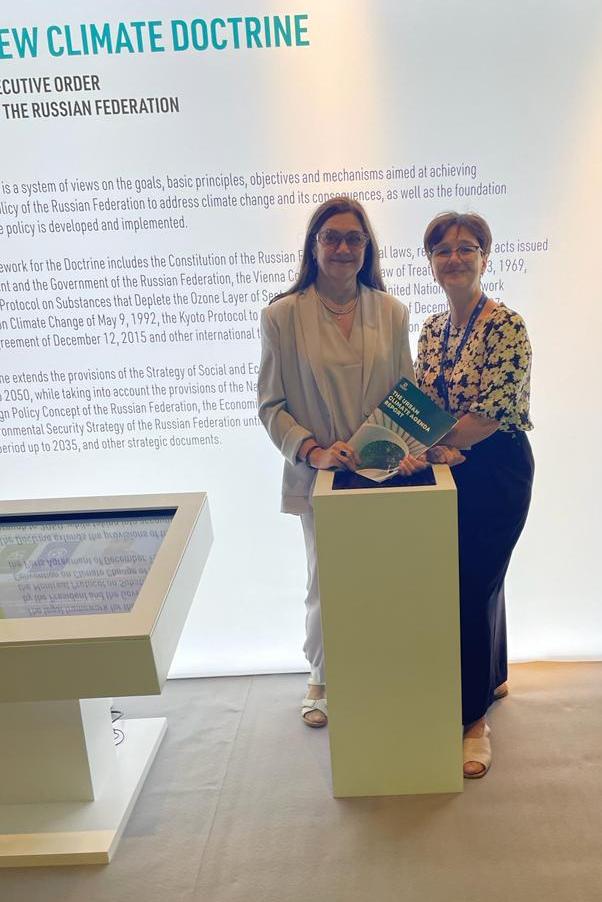The 28th UN Climate Change Conference 2023 (COP28) was held in the UAE. It gathered more than 70,000 delegates from all over the world, including TSU staff, who represented Russia, as well as TSU’s partner, the Northern Forum. The conference agenda included climate change and adaption of humankind to it, the green economy, and green energy.
“Russia's position is not as straightforward in the speeches of Russian participants such as politicians, business representatives, and scientists, as it looks in the Western world,” said Lyudmila Borilo, director of the Siberian Institute of the Future at TSU. “The goal of reducing CO2 emissions and controlling greenhouse gas emission as a part of climate change policy is supported, but the prevailing approach is to ensure economic and energy security while implementing the principles of green economy at the national level. This means that Russia will not abandon fossil energy sources in a short period of time.”
TSU representatives participated in several events, and during the Climate Solutions Day informal discussion they presented the developments of TSU scientists, as a part of Global Earth Changes: Climate, Ecology, Quality of Life, a project implemented under the Priority 2030 program (supervisor Victor Dyomin, TSU First Vice-Rector).
“At the Climate and Human-centeredness platform, we were able to discuss with our colleagues from the Yamalo-Nenets Autonomous Okrug and Komi Republic the challenges scientists are facing and the opportunities opening up for them in working with indigenous and local populations,” said Olga Shaduiko, TSU SecNet coordinator. “For example, while solving local issues of the climate challenge, Arctic and subarctic residents can effectively contribute to monitoring environmental changes, record changes of plant and animal biodiversity, and perform a number of other tasks important for the study of Arctic ecosystems.”
“We had a very interesting exchange of views with Moscow colleagues on research practices for urban sustainability and comfort,” Lyudmila Borilo emphasized. “TSU’s experience with computing a Tomsk sustainability index and its results were discussed and received a high assessment in thoroughness and depth of the research, as well as the perspective and necessity in terms of sustainable regional development and climate conservation.”